I am growing a 2D array by it's column and row size in c programming.
#include <stdio.h>
#include <malloc.h>
//#include <conio.h>
//#include <stdlib.h>
void func(int** p, int d, int** sizes)
{
static int count = 0;
int* item = NULL;
int* temp = NULL;
if (d == 5) return;
*sizes = (int*) realloc(*sizes, (d + 1) * sizeof(*sizes));
*sizes[count] = d + 1; // <=== in second recursive call it throws memory allocation errors here in runtime
//p = (int**) realloc(p, (count + 1) * sizeof(int*));
//printf("%d\n", *sizes[count]);
//item = (int*) realloc(*(p + d) , *sizes[count] * sizeof(int));
//if (item) *(p + *sizes[count]) = item;
++count;
func(p, d + 1, sizes);
}
int main()
{
int* sizes = (int*) malloc(sizeof(int)); // different column sizes of rows
int** p = (int**) malloc(sizeof(int*));
*p = (int*) malloc(sizeof(int));
printf("Hello World!\n");
func(p, 0, &sizes);
printf("Hello End!\n");
getchar();
free(p);
return 0;
}
But I am stuck in memory allocation errors.
 Would Someone please help? Am I using realloc() in wrong way? please point my mistakes. Actually I was going to solve a problem in leetcode.com where I required a variable column sized 2D array in c programming. Thus I thought this brainstorinming would help me understand the dynamic 2D array first. Then I will move into the real problem.
Would Someone please help? Am I using realloc() in wrong way? please point my mistakes. Actually I was going to solve a problem in leetcode.com where I required a variable column sized 2D array in c programming. Thus I thought this brainstorinming would help me understand the dynamic 2D array first. Then I will move into the real problem.
EDIT:
#include <stdio.h>
#include <malloc.h>
//#include <conio.h>
//#include <stdlib.h>
void __cdecl func(int** p, int d, int** sizes, int* rows)
{
int* item = NULL;
if (d == 5) return;
*sizes = (int*) realloc(*sizes, (d + 1) * sizeof(*sizes));
(*sizes)[*rows] = d + 1;
p = (int**) realloc(p, (*rows + 1) * sizeof(int*));
printf("%d\n", (*sizes)[*rows]);
item = (int*) malloc((*sizes)[*rows] * sizeof(int));
item = (int*) realloc(item , (*sizes)[*rows] * sizeof(int));
if (item) *(p + *rows) = item;
p[*rows][(*sizes)[*rows] - 1] = 1;
printf("item[%d][%d]: %d\n", *rows, (*sizes)[*rows] - 1, p[*rows][(*sizes)[*rows] - 1]);
++(*rows);
func(p, d + 1, sizes, rows);
}
int main()
{
int rows = 0, i = 0, j = 0;
int* sizes = (int*) malloc(sizeof(int));
int** p = (int**) malloc(sizeof(int*));
*p = (int*) malloc(sizeof(int));
printf("Hello World!\n");
func(p, 0, &sizes, &rows);
printf("Hello End!\n");
for (; i < rows; ++i)
{
int j = sizes[i] - 1;
printf("p[%d][%d]\n", i, j, p[i][j]); // CAN'T ACCESS HERE
}
//for (; i < rows; ++i)
//{
// if (*(p + i))
// {
// free(*(p + i));
// *(p + i) = NULL;
// }
//}
//free(p);
//free(sizes);
getchar();
return 0;
}
I can't access the array when the recursive function exits performing. I have printed the diagonal values of the 2D array only malloced during recursion. But outside it's showing access violation.
